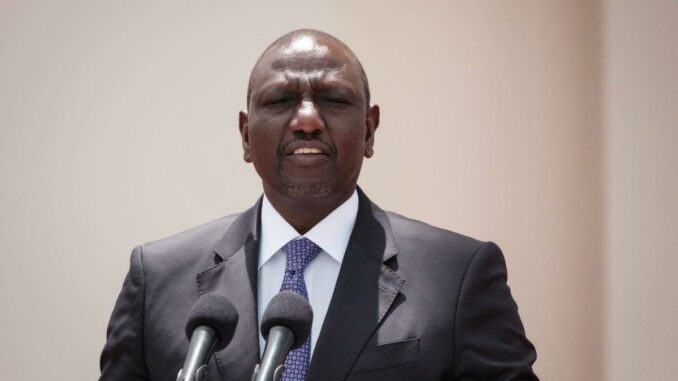
Kenya’s initiative to lead a UN-backed mission in Haiti faces backlash domestically amid escalating violence in Haiti.
President William Ruto’s proposal to deploy 1,000 police officers to assist Haitian authorities in combating gang dominance in Port-au-Prince is met with skepticism at home. Critics allege financial motives and question the legality of the deployment, advocating for a military intervention instead. The delay in deployment due to a lack of a reciprocal agreement with Haiti underscores legal concerns.
Despite Ruto’s efforts to address this by signing an agreement with Haiti in March, the resignation of Prime Minister Ariel Henry complicates matters further. Concerns over the safety of Kenyan police officers in Haiti’s volatile environment prompt debate. Some argue for a robust military intervention before police deployment. Accusations of ulterior motives, including potential financial gain, particularly in light of US funding, add to the controversy. Parliamentary debates reflect deep divisions, with opposition figures condemning what they see as Ruto’s authoritarian tendencies and disregard for legal procedures.
Despite assurances of moral commitment from Ruto, skepticism persists regarding Kenya’s involvement in Haiti. Critics warn of potential risks and costs, emphasizing the need for caution in committing Kenyan forces to the troubled nation.
